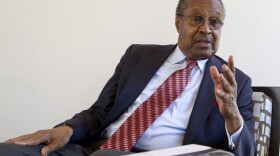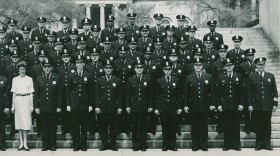Michele Norris
-
Through powerful monologues, Anna Deavere Smith has tackled race riots, integration and health care. In Notes from the Field, she's using her characters to explore the school-to-prison pipeline.
-
The TV show, set in a New York City hospital in the early 1900s, depicts turn-of-the-century medicine in grisly detail. Stars Clive Owen and Andre Holland say there's no nostalgia involved.
-
A new documentary revisits Florida's loud music murder case. Michael Dunn, a white man, shot 10 bullets into a car with four unarmed young black men during an argument at a Jacksonville gas station.
-
A huge hit upon its release, the 1949 musical South Pacific still resonates with contributors to The Race Card Project — particularly a song about how prejudice is learned, not innate.
-
John Ridley tells NPR's Michele Norris that while writing the screenplay, he always thought of his two sons. "My message was just about character," he says.
-
After days of worry, Clarence B. Jones, legal adviser to Martin Luther King Jr., was relieved to stand at the Lincoln Memorial and watch the event unfold without a hitch. While there's been great progress in the decades since, Jones says, he also feels King's dream still remains unfulfilled.
-
Clarence Jones played an integral but mostly unseen role in the 1963 March on Washington. As Martin Luther King Jr.'s legal adviser, Jones assisted in drafting King's landmark speech, and drew from a recent event in Birmingham, Ala., to craft one of the speech's signature lines.
-
Joseph Burden and Martin Niverth, officers with the segregated D.C. police department, were both assigned to patrol the March on Washington. Burden, who is black, worked while wishing he could participate. And Niverth, a white man, was surprised to be assigned a black partner for the day.
-
When she was just 12, Edith Lee-Payne's face was immortalized in an iconic photo from the March on Washington. Decades would pass before Payne learned that her image has been used as part of documentaries, books, calendars and exhibits about the history of the civil rights movement.
-
On June 11, 1963, Gov. George Wallace stood at the University of Alabama to block two black students attempting to cross the color line and register for classes. The event forever associated him with segregation. His daughter, Peggy Wallace Kennedy, 63, is trying to shake that link.









